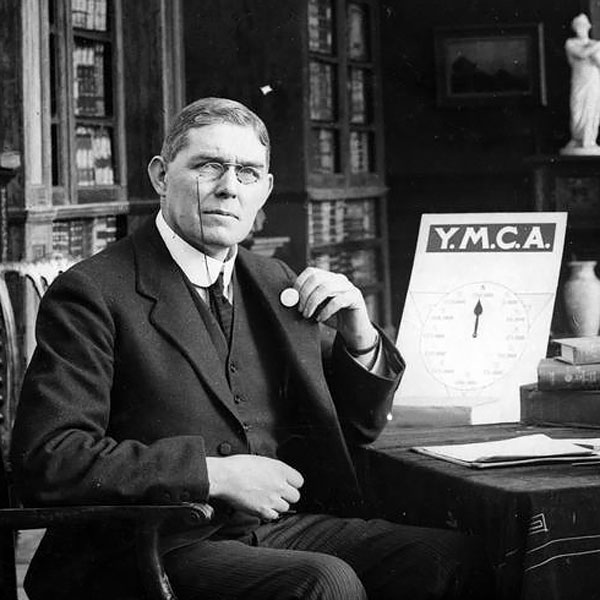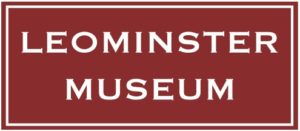Sir Arthur Yapp, 1869–1936
Secretary and President of the YMCA
Sir Arthur Keysall Yapp grew up in Leominster, where he became voluntary secretary of the local branch of the YMCA.
He was so successful in this role that a series of managerial appointments for that organisation followed leading to his appointment as National Secretary.
During World War One he was briefly Director of Food Economy and knighted for his work during the war.

Arthur Yapp was born in Orleton in March 1869, the youngest of the three children of Jane (née Gammidge) and Richard Keysall Yapp. The Yapp family had farmed in the Orleton area for generations, and it seemed Arthur was destined follow this path until his father died suddenly when Arthur was just 4 years old. The family left Orleton and moved to 24 Church Street in Leominster.
Arthur was educated by a governess before moving on to the ‘Lighthouse’ private school in Bridge Street. He later attended the newly established Hereford County College. From an early age Arthur seemed to be a natural organiser. He became secretary of the local Temperance Society whilst in his early teens. At the age of 21 he started working at Alexander and Duncan, the agricultural engineers in Broad Street, and became involved in the local Young Men’s Christian Association (YMCA). He became the Secretary and immediately started to revitalise the Branch. Within a year, they had 80 members; a year later they had more than 300 — a record for a town of this size.
Unsurprisingly, this success brought Arthur to the attention of the wider movement and in 1892 he was invited to become the General Secretary of the Derby YMCA. After five years at Derby he was appointed Organising Secretary for Lancashire. He was living in Liverpool when he married Alice Higson in 1901. A year later their first son Arnold Keysall was born in the city. In 1907 the family moved to Manchester as Arthur oversaw the development of a new purpose built YMCA building. A daughter, Marjorie Keysall, was born in 1908 to complete the family.
Arthur’s work in Manchester came to an abrupt end in 1912 with an unexpected call to London. Frank Howe, the Secretary of the National Council, had been killed in a cycling accident and Arthur was invited to become General Secretary to the Council.
The appointment was timely, and as war approached Arthur moved to change a rather moribund organisation. Within 10 days of the declaration of war, they had established 250 recreation centres in tents at training camps centres across the country. As winter approached it was clear that tents alone could not accommodate the men and this led to the evolution of the YMCA hut — simply made but durable wooden structures to provide services to hundreds of men. They often operated in less than ideal situations, and sometimes very near the Front lines.
The YMCA went on to provide a myriad of other services to the troops. The scale of their operation during the war was huge. Yapp raised £2,750,000 for the association’s work.
In 1917 Arthur was asked to take an honorary appointment as Director of Food Economy with the thankless task of promoting a campaign to reduce food consumption. His six month tenure as Director was generally regarded as a success, and he was knighted for his service.
After the war the YMCA fell into debt as donations and public money were withdrawn.
In the interwar years Yapp devoted himself to public speaking, preaching and travel. Sir Arthur Yapp retired from his post with the YMCA in 1929 and became Deputy President of the Association.
He died in November 1936 and was buried at St Georges Church, Orleton, where he is commemorated in a stained glass window.
Arthur was the brother of Richard Henry Yapp.

